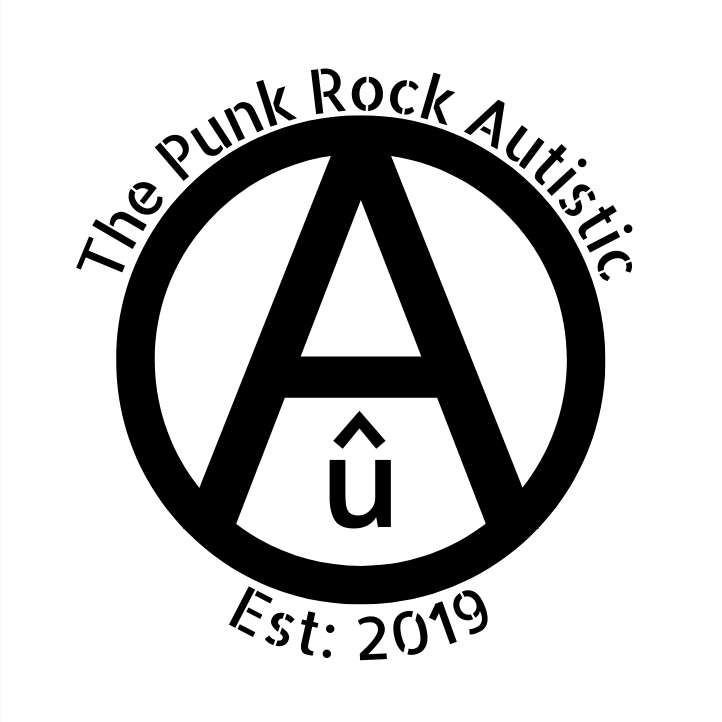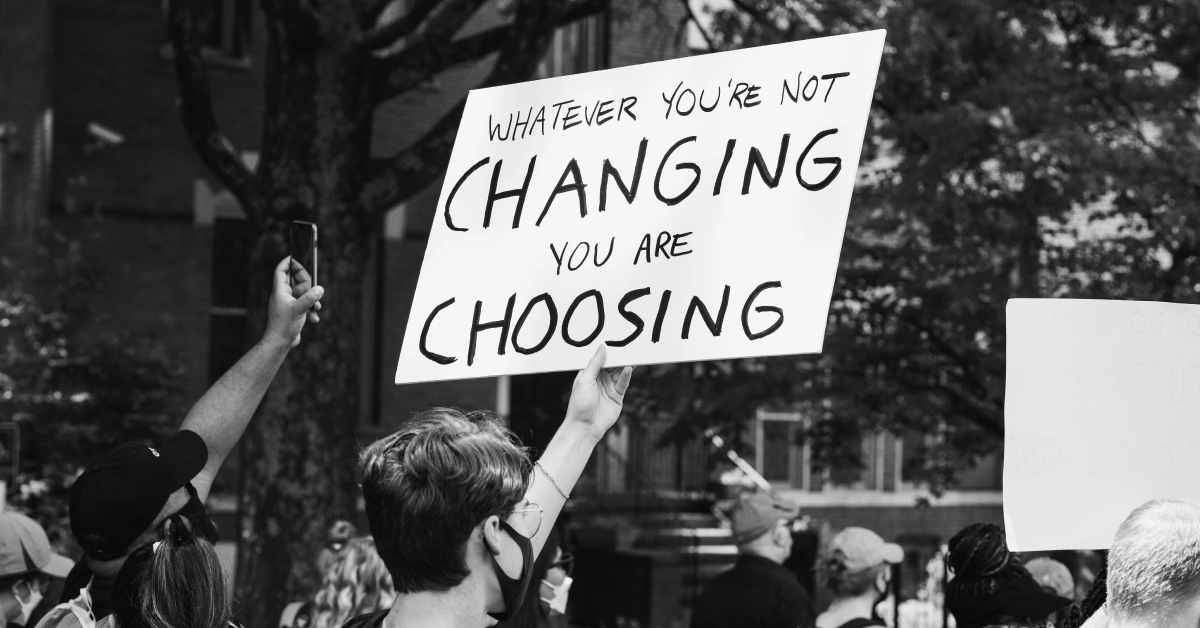My First-Hand Experience:
I worked within the disability field for a very long time, nearly 15 years. I have held several positions from vocational services supervisor, to direct support professional, to group home house manager. Any job in this field you can think of, I have probably held a position close to it. In a lot of ways, I am really thankful to have had these jobs. As I have mentioned in other articles, it is one of the main reasons I looked into a diagnosis for myself. I saw a lot of me in the people I worked for. Though what I really feel I saw solidarity was the lack of accommodations many people who were former clients of mine received, especially working as a paraprofessional in education. I was in special education growing up and was given a lot of inadequate resources that really weren’t well suited for me. In my 20s, I started to work in the direct care field, and seeing firsthand the manifestations and traits exhibited by autistics that I worked for led me to highly suspect I was autistic as well. Turns out I was right.
Previously, when working in direct care and education, I found myself having a very hard time following the cultural climate, and often found difficulty following programs given by my superiors. I could not, with my conscious intact, continue to be a part of a system that sees people who are different as a problem needing to be fixed. Most of the time these programs were not beneficial at all to a disabled person, especially when saturated with problematic and toxic structures that illicit cure rhetoric, behavioral intervention, negative reinforcement, and most especially ABA. The focus was never on the real problem. It was never on social inclusion, only on integration. The focus was never on changing the environment or changing the culture but instead was steeped in a lack of understanding and accommodation. There are so many organizations that exist claiming to want to “help” disabled folks, but they often do far more damage than good. This is a systemic problem that has its reach in almost every avenue of their field, especially those organizations where not one of their board members is disabled. There is a tremendous sense of irony here. How can a group state they represent allyship and support to a community, yet not have anyone in leadership roles who actually are members of said community, let alone having first-hand experience? I see this a lot with non-profits and corporations, and even with mental health, especially those professionals who claim to specialize in neurodivergency but are not neurodivergent themselves.
Working in this field after coming into the neurodiversity culture made me aware of how rampant ableism is within it. It really caused me to be horrified by the culture of this field, more aware of how badly people are treated, and how difficult it is to find a company that really supports its clients. Not everyone is horrible, mind you; there are many amazing people who work in this field that really do have the interests of others as a motivator; regardless, these problematic aspects became so much more common than I was first aware of and much more apparent. So, my perception changed greatly. One of the hardest decisions I have ever made in my life is to leave this field as an “employed” individual. I love working within the community, and I love helping people grow and be supported, but there gets to be a point where you have to realize that the cancerous wound of the system will never be fixed by slapping a band-aid on it. The problem isn’t with the folks being served of course, but more often with the people who often run these programs and create the services for them.
This unlearning and deconditioning of my own experiences through learning I was autistic and finding comrades in the neurodiversity community had a significant impact on how I felt about the field I was once employed within. This was perhaps the most significant factor in why I decided to leave for good. Coming into the neurodiversity community, I learned far more than school or employment was ever able to teach me. I learned validation of myself and my own challenges, especially when it comes to being neurodivergent and navigating through a neurotypical world. It has taken me a long time to learn to feel comfortable with who I am. I struggled a lot growing up, always being seen as “other.” Coming into the community eroded this barrier of feeling ostracized. It was life-changing to know I wasn’t alone. Self-advocacy has been really important to me, but even today I still struggle with internalized ableism, and like others, it will be something I will continue to always struggle with. Education, gender norms, social integration, and communication have all been things that have been a really hard experience for me. Slowly over time, especially with a better understanding of how many of these concepts are socially constructed, as well as learning the social model of disability, I have been learning to understand to a higher degree that the problem with these struggles is not with me, but instead with the environment and culture around me. While I still experience a lot of self-doubt, guilt, and internalized ableism as an adult, I have come leaps and bounds more self-actualized to these concepts. This will always be an unending process, and I am so grateful to my autistic and queer mentors who help pave the road for me to in turn help others.
The Importance of Intersectionality:
However, there is something even greater that I learned as time passed on: the insurmountable importance of intersectionality within all forms of activism and advocacy. Sadly, this lesson is something that is frequently missed by many in the advocacy community. It is something that has taken me and others quite some to learn, and perhaps not quickly enough.
One key aspect in the past few years that I have learned isn’t so much from one particular subject matter, but rather, a greater perspective of the whole. Things are a lot more nuanced than they seem, and as a white, cis passing person, I have learned the need for the recognition of privilege, especially my own, and even more especially from the disability advocacy perspective. My own experiences are just that, my own. I may find common ground with others who have the same neurotype as me, and others often may find my advocacy relatable, but that can only go so far for real change. We need to have a full systemic understanding of hegemonic power. That being said, it is nearly impossible to truly understand the experiences of someone purely from a scholastic perspective. I may be part of a disenfranchised group, but I and others still benefit from privilege, even if disabled. Because of this privilege, we are often unable to fully grasp what it is like for others who are more marginalized than ourselves. The best we can do is learn from them, not take away their platform, recognize the system does not benefit everyone in an equitable means, and be an ally to them and help raise their voices without veering from our own lane. Allyship is one thing, and it is important that we have allies. However, only through direct first-hand experience can the reality of someone’s day-to-day and moment-to-moment life be truly understood. Empathy can be the foundation of progress, but without solidarity, it’s meaningless. This understanding is vital to advocacy, not just for me, but for all who work toward changing the paradigm.
The Impact of Hegemonic Power on the Disabled Community:
Access to disability resources can be really difficult to navigate for many people, especially those who are BIPOC and AFAB. There must be an understanding that our capitalist and white/heteronormative society is built around those in the “majority”: it serves them first, that there is a concentration of power within it, and that it is fundamentally designed by and for those who benefit from that system, all the while excluding those who are “other”, be that BIPOC, disabled, LGBTQIA, or lower socio-economic folks.
This is the basis of what hegemonic power means: for those who are disabled, our society holds ableist notions of who is “beneficial” and can “contribute” to society, and sees these “others” as unworthy of receiving or even having access to the same benefits or resources as those in concentrated pools of white/cis-hetero hegemonic power. This is the root of why capitalism is antithetical to the existence of disabled people. We need a change in consciousness, and we need a cultural shift. We need to stop seeing people as cogs in the machine and stop basing their worth on how much they offer in terms of profit/capital and how long they can last in the rat race. This concept strips humanity from people and sees people as machines. If you can’t contribute, you aren’t worth anything. This notion of contribution is honestly, bullshit. Money should not be the driving force behind life; life itself and happiness should be. The notion of work to live versus live to work is so harmful, outdated, and problematic. People aren’t machines; everyone, including disabled folks, should not have to work purely for economic benefit or survival. We have the resources to make sure every human being can have access to health care, education, food, and housing. Yet, we squander it and withhold it from people, especially those outside of the realm of hegemonic power.
Speaking further on the hegemony, the reality for many autistics who exist outside of white/cis-heteronormativity, diagnosis is often biased, and social constructs of gender are a frequent denominator in our understanding of how disabilities manifest in people. For example, many women-identifying people, trans/non-binary people, and BIPOC folks do not get the same mental health access or diagnosis for neurodivergence and other disabilities as cis-hetero white men do. Autism is often stereotyped as a “white male” condition; this could not be further from the truth. This stereotype is reinforced in every aspect of our lives, from the media to literature, to regular conversation, to pop culture. This stereotype has existed for decades, and sadly, it is even reinforced within the advocacy of our own community. It is saturated, especially within the mental health workforce. The bar of entry is nearly impossible for so many people who exist outside the boundaries of this stereotype. Often access to proper diagnosis is not available to people who are of lower socioeconomic status or are BIPOC and AFAB, and by default, many people are not able to get access to benefits because of this.
Another problematic factor is in our understanding of disabilities, especially neurodivergence and other developmental disabilities. Many of these disabilities are viewed as something “broken” within a person, something that needs to be fixed. The Neurodiversity Movement is something that has been growing rapidly. The very foundation of the coinage of the term “neurodivergent” sees things like mental health conditions, personality disorders, Autism, SPD, ADHD, etc., not as a problem, but just simply a different neurotype. Its goal is to work within the field to help others better understand this concept and lessen the grip of ableism, by offering first-hand experience as the foundation of education.
Looking Forward:
Neurodiversity and intersectionality must walk hand in hand with each other, or the entire foundation will be doomed to crumble and implode. To advance progress for disabled people, we must also champion the advancement of progress for all marginalized people. We must break through stereotypes, we must break through social constructs, and we must break through inequality and supremacy in order to bring forth real change.




Brilliant work Dani:) i totally support this.💎
Love this point of view!
Fantastic! Thank you for your hard work to help break through stereotypes and for all you do for my autistic child by paving the way!
This. All of this <3